Search Posts
Recent Posts
- Rhode Island Weather for April 20, 2025 – Jack Donnelly April 20, 2025
- Real Estate in RI: 1890s Victorian on College Hill, $1.36M with Residential Properties for seller April 20, 2025
- Gimme’ Shelter: Serena Joy at the Providence Animal Control Center April 20, 2025
- On the grow in RI: We start at the very beginning. How good is your dirt? – Diane Schlindwein April 20, 2025
- Saving Peter (Cottontail) at URI: Bunnies for biodiversity April 20, 2025
Categories
Subscribe!
Thanks for subscribing! Please check your email for further instructions.
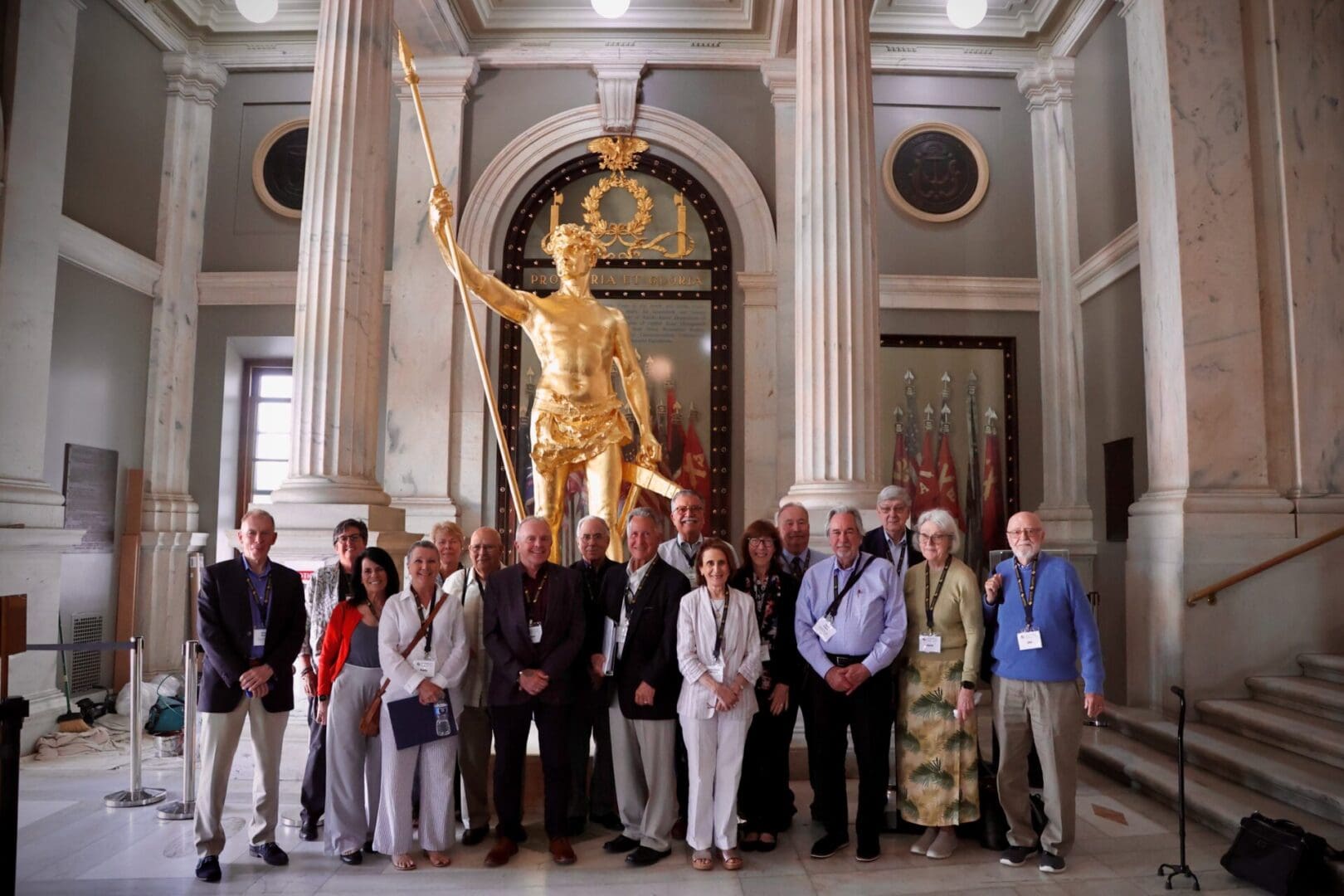
Leadership Rhode Island’s Senior Fellows pledge to volunteer with non-profits – Herb Weiss
By Herb Weiss, contributing writer, aging issues
When a state law was enacted in 2024 allowing families to install monitoring cameras in the nursing home rooms of their loved ones, Ginny Lee, one of Leadership Rhode Island’s first Senior Fellows, was among those celebrating.
Lee had spent a lot of time button-holing legislators and testifying before House and Senate committees in support of the bill, which is intended to protect nursing home and assisted living residents from physical, verbal and sexual abuse.
By advocating for passage of the “Grammy cam” surveillance law, Lee was fulfilling the civic commitment she made in 2023 as a member of the inaugural Senior Fellows program, a joint effort of LRI and Age-Friendly RI.
Empowering older adults to take “an active role in shaping the state’s future” is exactly what James Connell, Age-Friendly’s executive director, had in mind when he approached LRI’s then-new Executive Director, Michelle Carr, to create the Senior Fellows program.
Though Lee was among the Senior Fellows who successfully fulfilled their commitments to improve the lives of older Rhode Islanders, some Fellows in the first cohort struggled to find a way to make good on their respective pledges.
Feedback from the pilot program indicated that more structure would help participants carry out their civic commitments, says Lyanh Ramirez, LRI’s development manager.
That’s why the 2024 Senior Fellows program offered participants the option of volunteering with a community organizationalready engaged in age-friendly issues and activities.
The goal was to connect participants “to the causes and efforts they were passionate about,” Ramirez says. “There are so many wonderful initiatives already happening that we didn’t want to duplicate efforts.”
Participants, ranging in age from 62 to 86, attended eight sessions in May and June during which they discussed the needs and challenges of the state’s older population and many other topics.
Of the 28 participants, five are LRI alumni: Ray Poulioti, Barry Couto, Jodi Glass, Patricia Raskin, and Patty Cotoia.
Intergenerational communication was the focus of one session in which LRI alumni from different generations joined a discussion on ageism. Other sessions dealt with the value of knowing one’s strengths, and legislative activity related to healthy aging.
Participants also heard directly from each of the nine partner organizations that had agreed to work with one or more of the newly minted Senior Fellows until the end of the year.
Partner organizations included the Rhode Island affiliates of Age Friendly, the AARP, Meals on Wheels, PACE, the Senior Agenda Coalition, the Village Common and the United Way, along with the state Department of Health and the Coventry Human Services/Resource & Senior Center.
Here’s a sampling of what some of the Senior Fellows accomplished:
Five Senior Fellows contributed in different ways to the state Health Department’s efforts to make quality-of -life-improvements for those with Alzheimer’s Disease and Related Disorders (ADRD).
“They’ve all been very active,” says Victoria O’Connor, chair of the statewide ADRD Advisory Council that developed a five-year plan of strategies and activities to support those with dementia and their caretakers.
Joe McCarthy came up with the idea of finding out what other states are doing to address ADRD issues and to compare their plans with Rhode Island’s current five-year plan.
Two others, Brian Grossguth and Roland Moussally, did some “boots-on-the-ground” research. Grossguth visited two senior centers to get a sense for what resources are needed to better serve those with dementia; Moussally met with members of a group in Pawtucket to learn how they are incorporating the needs of residents with dementia in Pawtucket’s Age-Friendly action plan.
Meanwhile, Kathy Trier and Gary Avigne have contributed research to guide a new mini-grant program to support community initiatives for those with dementia.
They researched other grant applications for similar amounts of funding – less than $5,000 – to inform the development of the ADRD application. Trier and Avigne also assisted in the creation of a scoring matrix to compare the responses of applicants.
The five Senior Fellows presented their findings at the November meeting of the ADRD Advisory Council, to the group that oversees progress in implementing the strategies in the 2024-2029 State plan.
Five other Senior Fellows volunteered at the AARP. Four focused on efforts to make communities age-friendly.
“It’s important for everyone to have a safe place to walk, ride a bike, or even push a baby carriage,” explains Ray Pouliot, 77, retired East Greenwich school teacher.
The first hurdle for joining the AARP Network of Age-Friendly States and Communities is getting a commitment from local officials.
At the start of his work with AARP, Pouliot noted that being a resident of East Providence “and personally knowing the mayor might help get this initiative up and running.”
He was right. In October, Pouliot, Deborah Perry, also from East Providence, and a small AARP delegation, met with Mayor Roberto L. DaSilva to explain what it takes to become an Age-Friendly city.
The mayor agreed on-the-spot to support the effort. Pouliot and Perry get “full credit” for the success, says Matt Netto, AARP’s associate state director for outreach and advocacy.
Mary Ann Shallcross Smith, a state representative and President of Dr. Day Care Learning Centers, chose to concentrate on sidewalk improvement efforts because “all the phone calls I get from many people in my hometown of Lincoln” are about sidewalks.
Shallcross Smith says working on the AARP initiative complements her legislative interests to ensure sidewalk safety. She introduced a bill in the 2024 legislative session to maintain sidewalks and curbs along the state’s highways. The bill didn’t make it, but she intends to re-introduce a revised version in 2025.
“If there are no holes or cracks in sidewalks it will enable people who want to take a walk,” says Shallcross Smith. “It’s free exercise!”
She and Netto of the AARP also plan to approach Town Administrator Philip G. Gould soon to urge that Lincoln consider joining the AARP Network of Age-Friendly States and Communities.
She and AARP plan on approaching the town of Lincoln to urge them to consider joining the AARP Network of Age-Friendly States and Communities.
Senior Fellow Perry, 62, president and CEO of the YWCA, says she opted for the Livable Communities program “because it resonates with me.” She once worked as a municipal planner.
Perry, who expects to retire in August, 2025, says she will conduct a sidewalk audit in a Providence neighborhood to fulfill her Senior Fellow pledge. After retiring, she hopes to have time to get involved in East Providence’s Age-Friendly program.
In October, Senior Fellow Janis Solomon, who retired in 2008 after 43 years as a professor of German Studies at Connecticut College, joined a sizable group of Rhode Islanders learning how to conduct a sidewalk audit. She will audit streets in a neighborhood in Providence.
A fifth Senior Fellow, Vince Burks, 64, former communications director at Amica Insurance Company, chose to volunteer for the AARP’s public speaker’s bureau. ”I have experience with public speaking and public affairs, so I felt this would be a good fit,” he says.
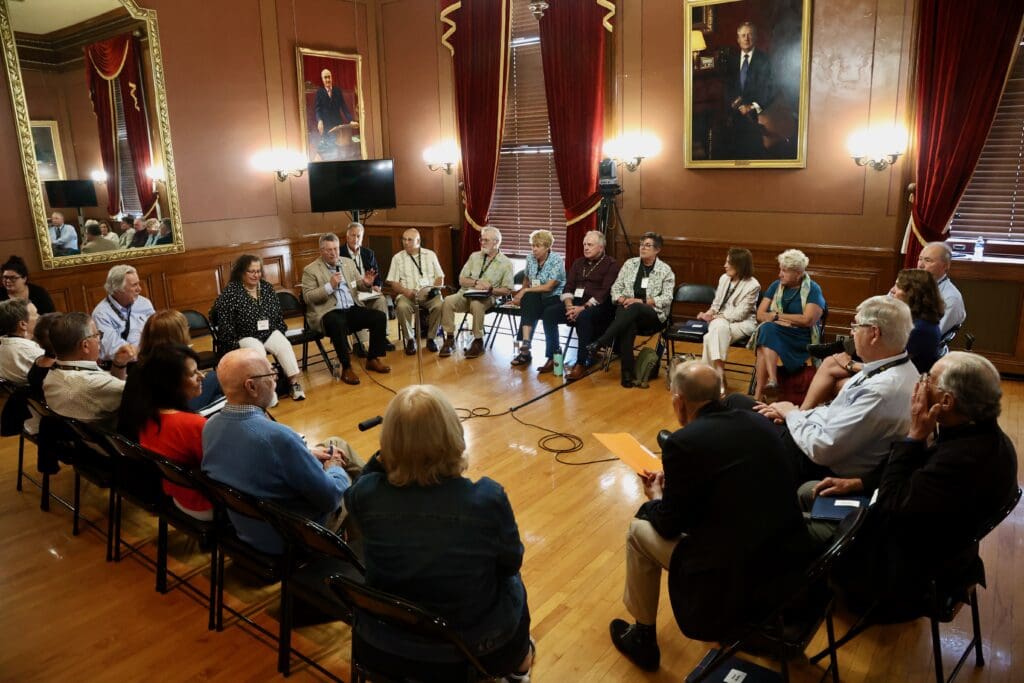
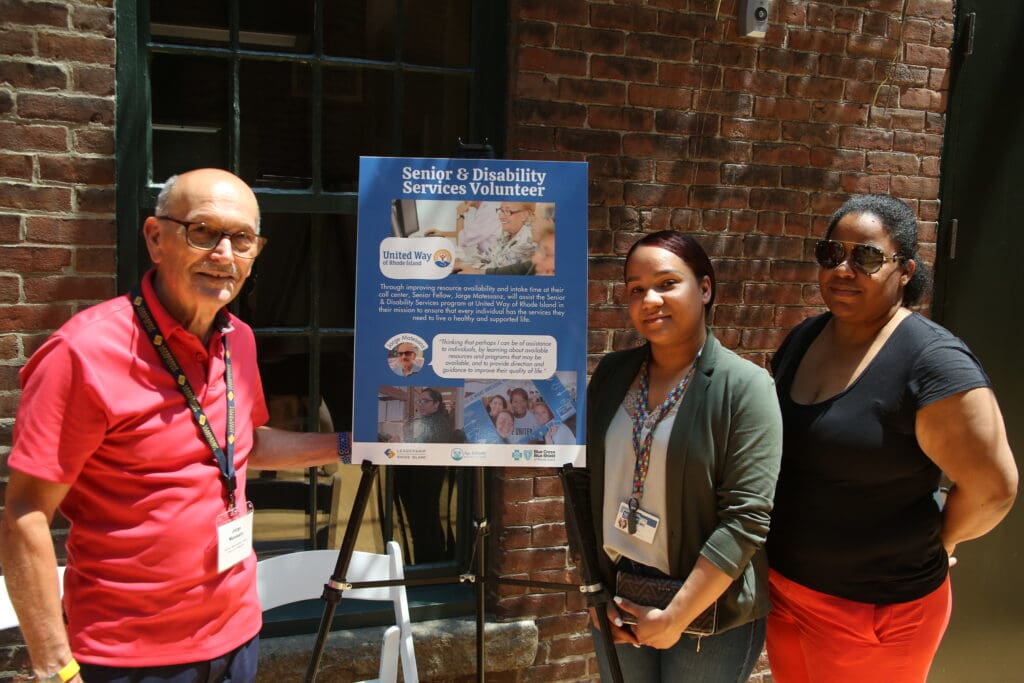
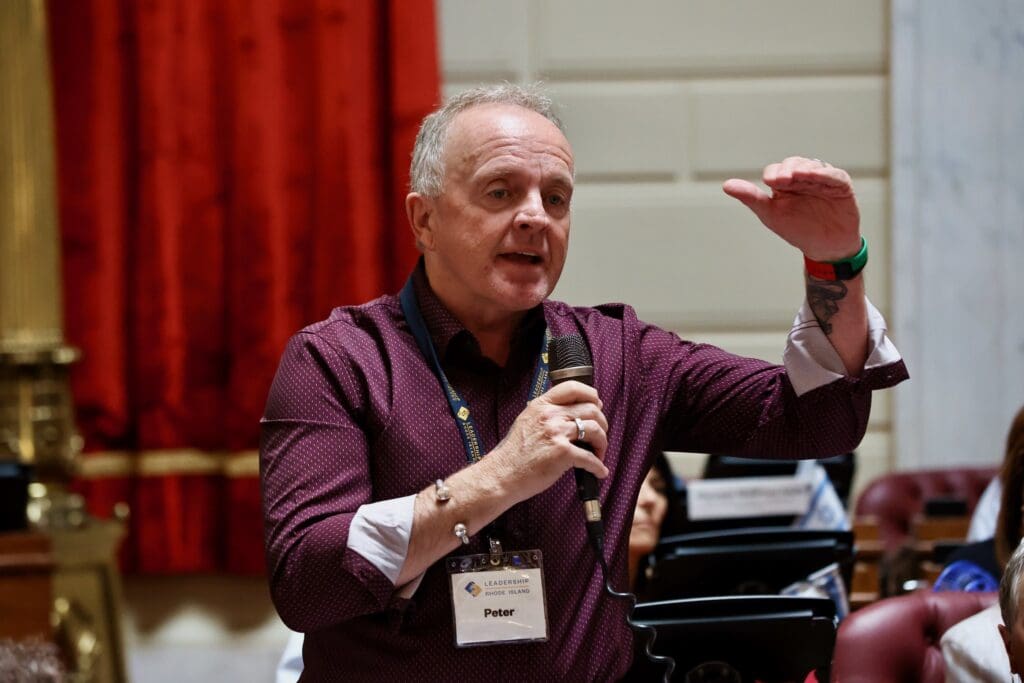
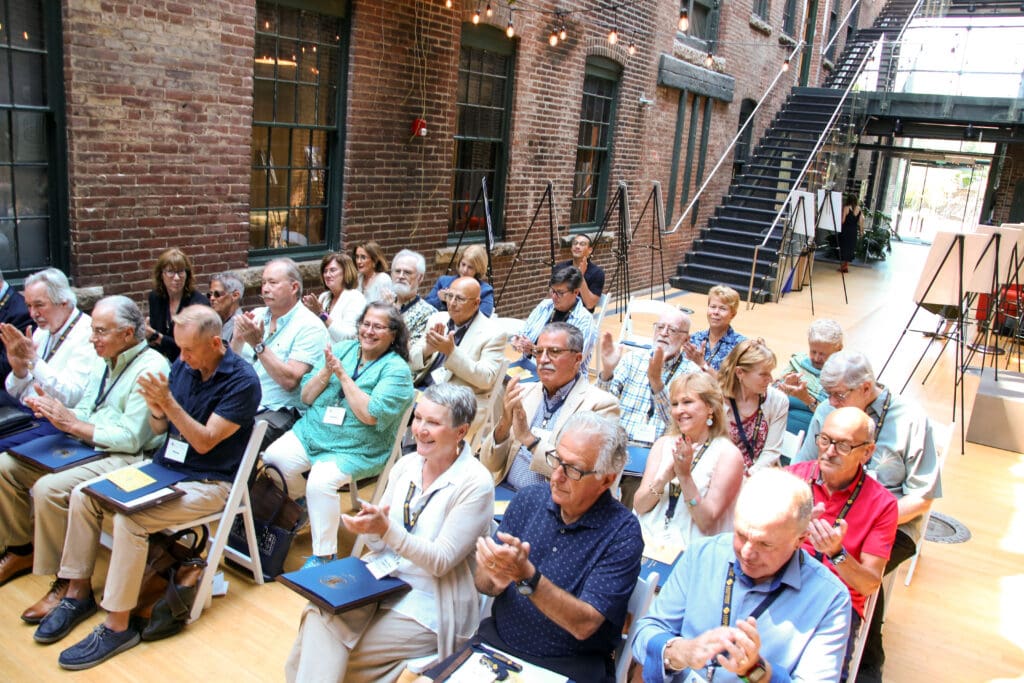
The Senior Fellows program is offered tuition-free. Carolyn Belisle, vice president of Corporate Social Responsibility at Blue Cross and Blue Shield of Rhode Island, says she was thrilled to join Age Friendly as a sponsor of the innovative program.
This article appeared in Leadership Rhode Island’s winter newsletter. Herb Weiss graduated from LRI in 2012.
___
To read more articles by Herb Weiss, go to: https://rinewstoday.com/herb-weiss/
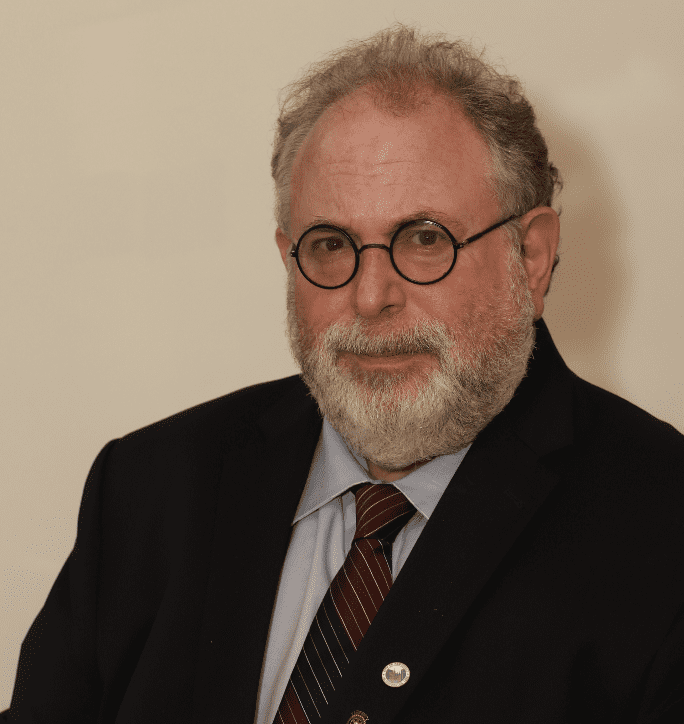
Herb Weiss, LRI -12, is a Pawtucket-based writer who has covered aging, health care and medical issues for over 43 years. To purchase his books, Taking Charge: Collected Stories on Aging Boldly and a sequel, compiling weekly published articles, go to herbweiss.com.

